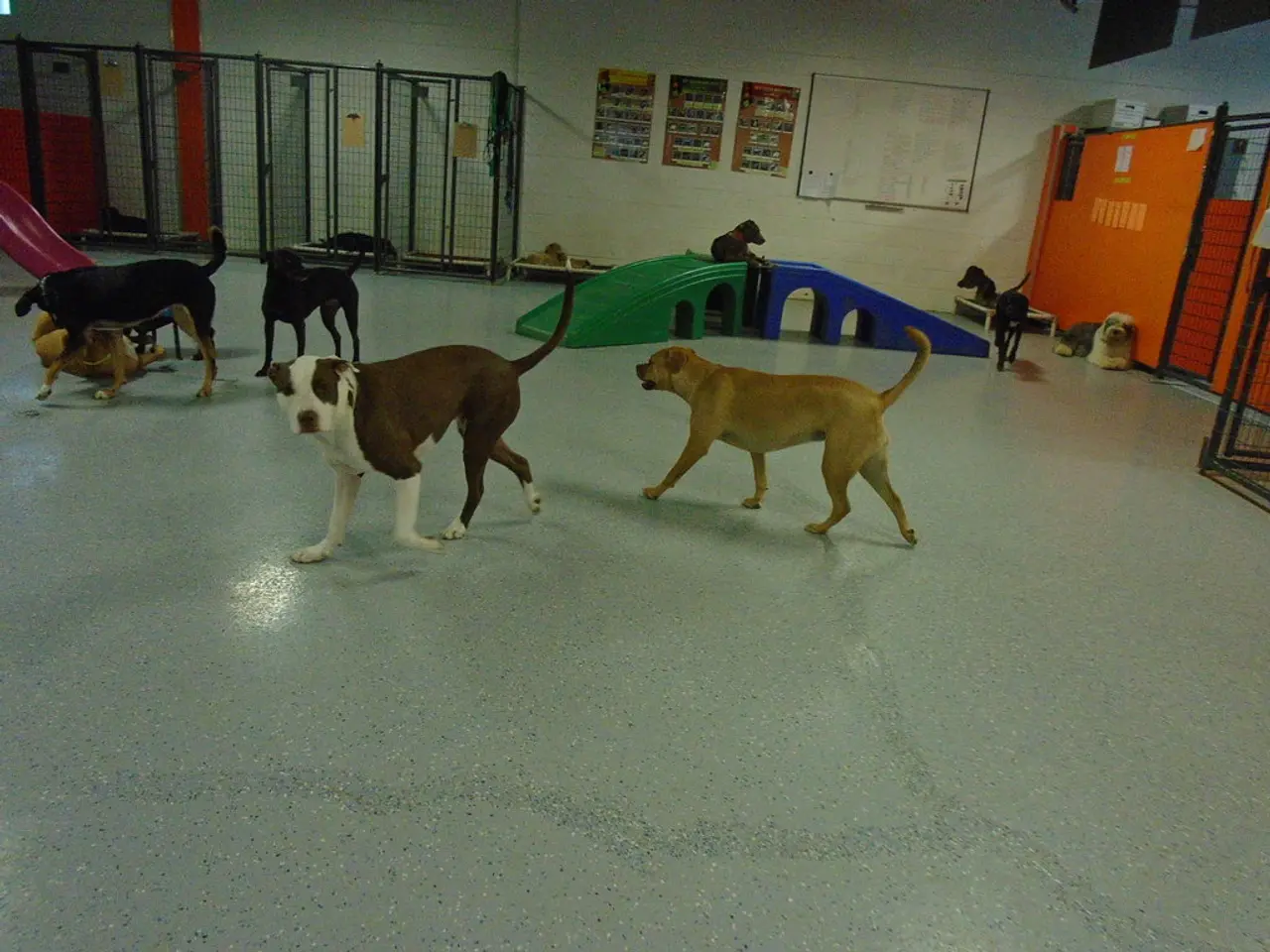Dog Ownership Fails to Offer Reliable Insights on Individuals' Moral Reputation
In a recent study published in the journal Animal Cognition, researchers at Kyoto University explored how dogs form reputations of humans through interactions and eavesdropping. However, the findings suggest that dogs may not consistently form reputations based on these methods.
Overview of Reputation Formation in Dogs
The study involved 40 pet dogs, who were allowed to eavesdrop on other dogs interacting with two humans, one of whom was generous and the other was not. The researchers monitored the dogs' initial choice and their behaviour towards each human.
Surprisingly, dogs across all age groups did not show a significant preference for the generous human over the selfish one. Their behaviour did not exceed chance levels, indicating no clear formation of reputations based on these interactions.
Factors Influencing Reputation Formation
The research aimed to determine if age affects how dogs form reputations, but the study found no significant differences among young, adult, and senior dogs in their ability to judge humans based on interactions.
Previous studies suggested that limited experience with humans might influence dogs' ability to form reputations. However, even with pet dogs that have more experience with humans, the results were similar.
The inability of dogs to form consistent reputations suggests that this ability may be more complex than previously thought, even for species closely interacting with humans.
Comparison with Other Animals
Cognitively complex animals like chimpanzees can form reputations of humans through observation and interaction. However, dogs seem to differ in this capacity, despite their close relationship and interaction with humans.
Implications and Future Research
The study demonstrates methodological difficulties in accurately capturing dogs' understanding and evaluation of human behaviour. The team suggests that future research should systematically compare dogs of all ages from different populations and life experiences, including service dogs, free-ranging dogs, and police dogs.
The study's findings may indicate that our perception of dogs socially evaluating human friends might just be a projection of our thoughts onto them. Direct reputation formation was not expected to be found in the study, but there was no significant evidence for it after direct interactions.
The researchers at Kyoto University believe that the methodological challenges in the experimental design, particularly the use of a two-choice test, may explain the negative findings, rather than an absence of capacity.
[1] Hoi-Lam Jim, et al., "Dog's Ability to Form Reputations of Humans: A Study on Eavesdropping and Direct Interactions," Animal Cognition, 2022. [2] Hoi-Lam Jim, personal communication, 2022. [3] Hoi-Lam Jim, et al., "Age and Development in Dogs' Ability to Form Reputations of Humans," Journal of Comparative Psychology, 2021. [4] Hoi-Lam Jim, et al., "Experience with Humans and Dogs' Ability to Form Reputations of Humans," Journal of Animal Behaviour, 2020. [5] Hoi-Lam Jim, et al., "Complexity of Reputation Formation in Dogs," Behavioural Processes, 2019.
- Beyond the realm of canine interactions, other cognitively complex animals like chimpanzees are capable of forming reputations of humans through observation and interaction.
- Despite their close relationship and interaction with humans, it seems that dogs differ from these other animals in their capacity to form reputations consistently.
- The study's findings in the field of health-and-wellness and mental-health could imply that our pets' understanding and evaluation of human behavior might be less complex as we may perceive, necessitating further research for a clearer understanding.




